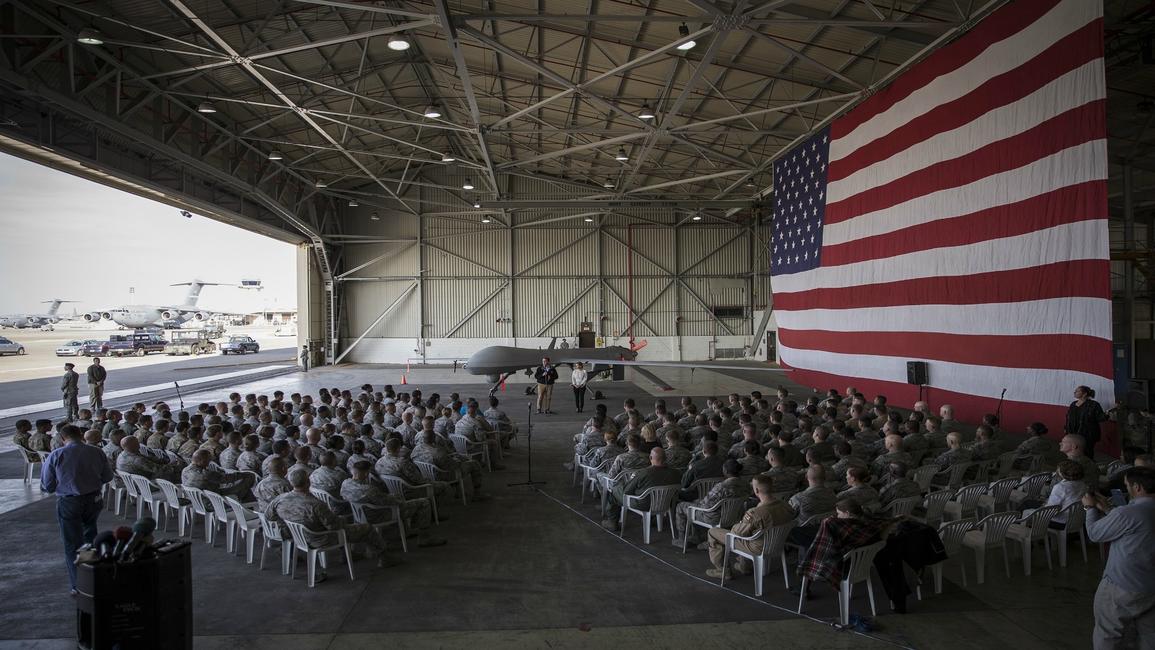
The political potential for the anti-IS coalitions
Though this coalition, led by Saudi Arabia, does not set IS as its sole target and will not be involved in military operations in Iraq or Syria, its appearance signifies the persistence of regional endeavours to reduce IS control.
It is the latest in a series of anti-IS groups, beginning with the US-led coalition against IS, followed by Russia’s intervention in Syria in support of Assad, and finally culminating by a more serious French involvement after the Paris attacks, calling for unifying efforts.
But while international efforts appear to converge on the purpose of limiting IS power, the Islamic State group's attacks worldwide continue to pose a serious threat. In addition, IS losses after years of international intervention appear to be limited, with very slow progress on either of the Iraqi or Syrian fronts.
| "Only the killing of certain civilians is a crime to the West" - Read Azmi Bishara's latest commentary here |
Managing the IS threat
In an attempt to replicate the Awakening Movement that temporarily played a crucial role in limiting al-Qaeda's influence in Western Iraq, calls have been made for establishing Sunni forces to battle IS.
Air raids have been insufficient to reduce IS control of territory, and relying on the Syrian regime's forces remains problematic given the split in local and global opinion on the fate of Assad.
But in addition to military targets, the various coalitions have also been concerned with limiting the Islamic State group's financial resources, through restricting oil trade across the Syrian-Turkish border and bombing oil refineries in areas under IS control.
| However, neither strategy, military nor financial, have so far been adequate |
These tactics have aimed to reduce oil revenues in a desperate attempt to dry up IS' financial sources.
However, neither strategy, military nor financial, have so far been adequate. The hope that substantial airstrikes would limit IS capacities, and thus move the battle from the West to Syrian grounds, has not materialised.
The unpredictable nature of the Islamic State group's attacks beyond the battlefield has raised the problem of deterrence. In fact, it seems one could draw a correlation between weakening the IS stronghold on the one hand, and the decentralisation of violence and its reproduction in unforeseeable locations on the other.
IS attacks abroad no longer require centralised planning, but could be the product of dormant IS cells abroad, or even simply independent enthusiasts.
In addition, the Western demand for further involvement of ground forces signifies the realisation that these attacks, for which IS groups and IS enthusiasts have been responsible, cannot be regarded as distressed reactions from a losing side.
Instead, along with IS' capacity to retain control over most of its territory, they indicate an advantage.
Political weapons for fighting IS
As such, there has been recourse to alternative means for fighting IS. These have ranged from decisions to impose additional limits on the influx of migrants, to pushing for political settlements - as exemplified recently in Libya and Yemen.
Though a political settlement in Syria is still not possible, limiting IS presence in other parts of the world must occur through presenting a unified political and military front that would smother the Islamic State group's presence.
| Though a political settlement in Syria is still not possible, limiting IS in other parts of the world must occur through presenting a unified political and military front |
Accordingly, the recent Libya peace talks under the auspices of Italy and France aimed at stemming IS influence, especially with emerging concerns that IS could control oil-rich territories.
The talks aimed to move beyond the military and legislative split that has plagued the country since May 2014, in order to form a unity government capable of facing the challenges of the Islamic State group in Libya.
A similar development can be identified in the Yemeni situation following the announcement of a ceasefire and peace talks in Geneva.
These talks could also be understood as an attempt to thwart the rise of IS. The decision comes with the increase in targeting the Saudi-led coalition after the assassination of the governor of Aden in a suicide bombing that was claimed by IS.
The beginning of such a transition could be indicative of a wider plan for the blossoming of new regional settlements. If Libya and Yemen could succeed, perhaps other war-torn states that suffer from the IS epidemic could also begin to move towards peace.
However, both the Libyan and the Yemeni crises are far too complicated to be straightforwardly resolved.
Yemen is torn between southern secessionists, a fragile alliance between Houthis and Ali Abdallah Saleh, a Saudi-backed government, and IS and al-Qaeda linked groups.
Libya, on the other hand, suffers from the complete absence of institutions, where allegiance is paid primarily to ringleaders of violence.
With the inherent difficulties in any political settlement, the success of these attempts at limiting IS activity remain dubious.
Karim Barakat is an instructor of philosophy in the American University of Beirut.
Opinions expressed in this article remain those of the author and do not necessarily represent those of al-Araby al-Jadeed, its editorial board or staff.




